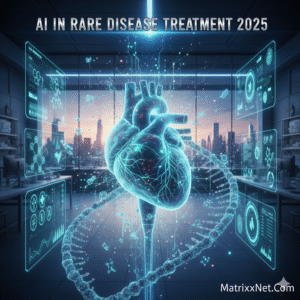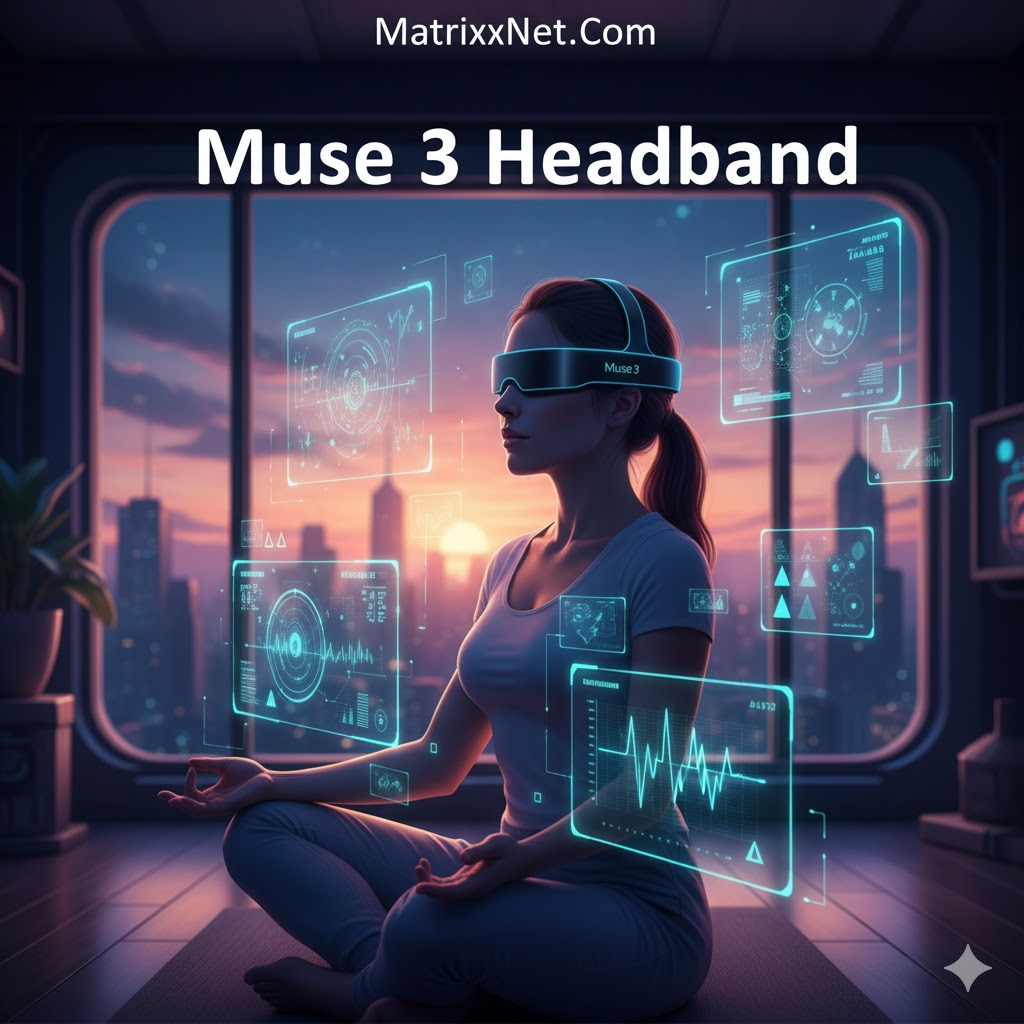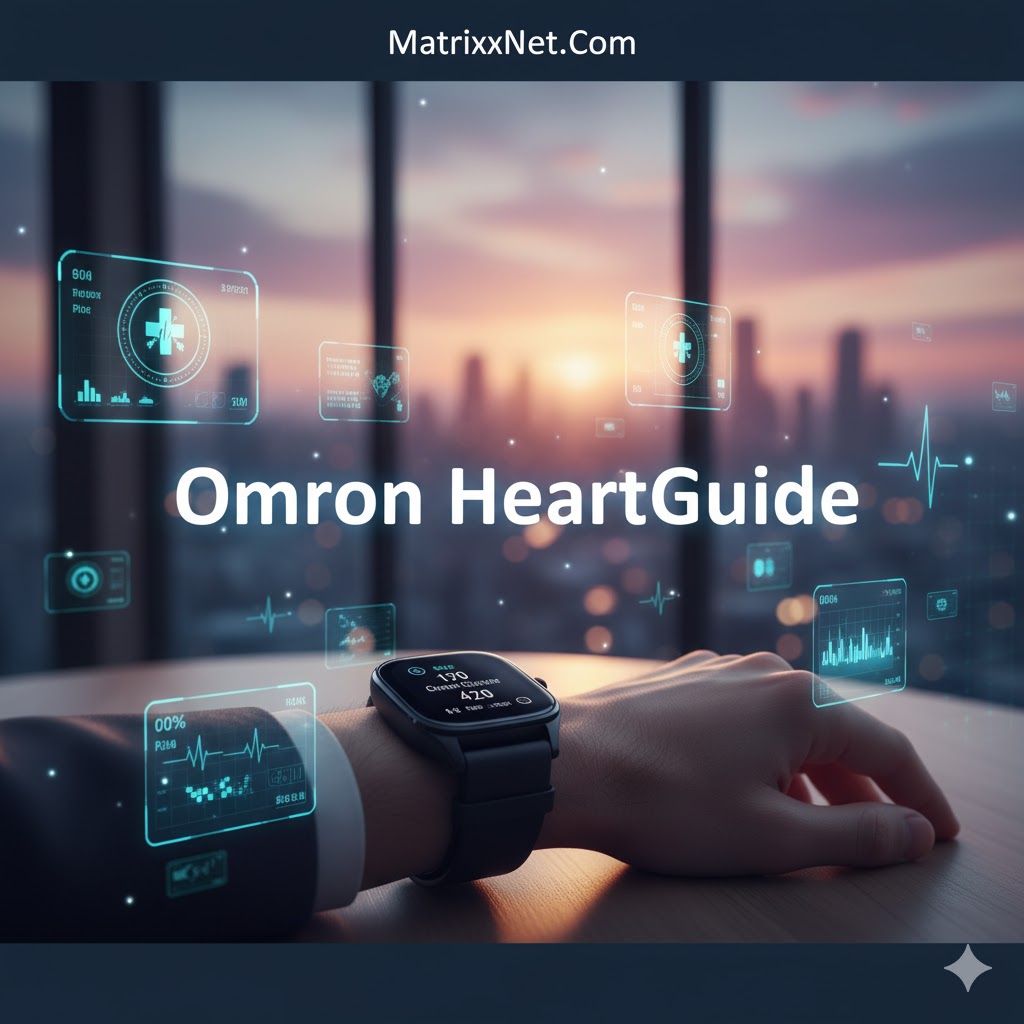🌟AI in Rare Disease Treatment 2025: Revolutionary Healthcare 🧬🤖
🌍 Introduction: The Silent Wrestle of Rare Diseases 💔
Rare diseases, sometimes called orphan illnesses, have an effect on a small fraction of the worldwide inhabitants. 🌐 Regardless of their restricted prevalence, they collectively influence over 400 million individuals worldwide. These circumstances are sometimes misunderstood, misdiagnosed, and underfunded in medical analysis. 🧪 Sufferers and households stay in uncertainty, dealing with lengthy diagnostic journeys and restricted remedy choices. ⏳
However right here’s the place Synthetic Intelligence (AI) steps in — not as a futuristic idea, however as a sensible game-changer in trendy drugs. 🩺💡 From rushing up analysis to personalizing therapies, AI is remodeling the panorama of uncommon illness remedy, providing hope the place conventional drugs has struggled. 🌈✨erson monitoring, and past. 🕵️♂️🔬
On this article, we are going to dive deep into how AI is reshaping rare disease treatment — exploring its function in diagnostics, drug discovery, precision drugs, affected p

🤔 What Are Rare Diseases? Understanding the Fundamentals 🧩
AI in Rare Disease Treatment A rare disease is often outlined as a situation that impacts fewer than 1 in 2,000 individuals. Though individually unusual, there are over 7,000 identified rare diseases. 😲
⚡ Key Information:
-
80% of uncommon illnesses are genetic in nature. 🧬
-
Almost 50% have an effect on kids, typically resulting in extreme outcomes. 👶
-
Solely about 5% have FDA-approved remedies. 💊
-
Common time to analysis: 5–7 years. ⏳
👉 These stats spotlight the pressing want for smarter, sooner, and extra accessible options — and that’s precisely what AI guarantees to ship. 🚀
🔍 The Function of AI in Rare Disease Diagnosis 🧠🩺
One of many largest challenges in rare disease treatment is delayed or incorrect analysis. Conventional strategies rely closely on doctor expertise and restricted medical literature. 📚 AI, nonetheless, can analyze large datasets, genetic sequences, and medical imaging to detect hidden patterns. 🌐🔎
🏥 AI-Powered Diagnostic Instruments:
-
Genomic Information Evaluation 🧬
-
AI can rapidly scan billions of DNA base pairs to detect rare genetic mutations.
-
Instance: Deep studying fashions determine mutations linked to rare metabolic or neurological issues.
-
-
Medical Imaging & Radiology 🖼️
-
AI algorithms detect abnormalities in X-rays, MRIs, and CT scans that human eyes may miss.
-
Helps in figuring out uncommon tumors, skeletal issues, or mind anomalies.
-
-
Scientific Determination Help Techniques (CDSS) 🧑⚕️
-
AI instruments cross-reference signs with 1000’s of uncommon illness instances, suggesting potential circumstances for docs to analyze.
-
💡 Influence: AI reduces the diagnostic journey from years to weeks and even days, saving lives and lowering emotional stress. ❤️
💊 AI in Drug Discovery & Growth for Rare Diseases 🚀🔬
Conventional drug growth is sluggish, costly, and dangerous — typically taking 10–15 years and costing billions. 💸 For rare diseases, the market is just too small for a lot of pharmaceutical firms to speculate. 😔
AI is disrupting this with sooner, cheaper, and extra exact drug discovery. ⚡
⚗️ How AI Accelerates Drug Discovery:
-
Drug Repurposing 🔄
-
AI scans present medication to search out new makes use of for treating rare diseases.
-
Saves time and sources in comparison with creating new medication from scratch.
-
-
Predictive Modeling 📊
-
AI predicts how molecules will work together with particular rare disease proteins.
-
Reduces lab experiments, rushing up candidate choice.
-
-
Scientific Trials Optimization 🧪
-
AI identifies appropriate affected person populations for trials.
-
Predicts potential outcomes and hostile results early.
-
🌟 Actual-World Instance:
-
Insilico Medication used AI to determine a possible remedy for a rare fibrotic disease in file time — lower than 18 months in comparison with the same old decade. ⏳
👉 AI is popping “orphan illnesses” into alternatives for speedy medical breakthroughs. 🏆
🧬 AI and Precision Medication for Rare Diseases 🎯
Rare diseases are extremely individualized. Even two sufferers with the identical situation could require completely different remedies. ⚖️
AI allows precision drugs, tailoring therapies based mostly on genetics, life-style, and atmosphere. 🌱
🔧 Purposes of AI in Precision Medication:
-
Genomic Profiling 🧬: AI analyzes genetic knowledge to advocate customized therapies.
-
Biomarker Discovery 🧪: Identifies molecular markers that predict illness development or drug response.
-
Therapy Personalization 🎯: AI matches sufferers with the simplest drug mixtures.
✨ This ensures sufferers don’t waste years on ineffective remedies, enhancing each survival charges and high quality of life. 🌈
📱 AI in Affected person Monitoring & Care 🏥💡
AI isn’t simply serving to docs in labs — it’s reaching sufferers of their every day lives. 🌍
📊 How AI Helps in Ongoing Care:
-
Wearables & Sensors ⌚
-
Monitor affected person vitals like coronary heart charge, oxygen ranges, and mobility.
-
Alert docs to abnormalities earlier than crises happen.
-
-
AI-Powered Chatbots 🤖💬
-
Present 24/7 help for sufferers with uncommon illnesses.
-
Assist with remedy reminders, symptom monitoring, and answering questions.
-
-
Predictive Analytics 📉
-
AI predicts potential issues, permitting early interventions.
-
👉 This steady monitoring helps sufferers really feel safer and reduces pointless hospital visits. 🏥✅
🌐 AI and World Collaboration in Rare Diseases 🤝
Rare diseases typically undergo from knowledge shortage. However AI thrives on collaboration and knowledge sharing throughout international locations and establishments. 🌍
Examples of Collaborative AI Platforms:
-
RARE-X: A world data-sharing platform that makes use of AI to attach researchers.
-
Orphanet: A uncommon illness data base leveraging AI for classification.
With AI, researchers worldwide can pool genetic knowledge, imaging, and scientific data — creating highly effective datasets that gas discovery. 🔥
⚖️ Moral & Sensible Challenges of AI in Rare Disease Treatment ⚠️
Whereas AI is transformative, challenges stay. 🚧
🔒 Key Considerations:
-
Information Privateness 🔐
-
Genetic and well being knowledge are extremely delicate.
-
Sturdy cybersecurity measures are important.
-
-
Bias in Algorithms ⚖️
-
AI fashions could underperform for underrepresented populations.
-
Various datasets are wanted to keep away from inequality.
-
-
Accessibility 🌍
-
AI instruments could also be costly and unavailable in low-income areas.
-
World well being fairness have to be prioritized.
-
-
Human-AI Collaboration 🤝
-
AI ought to help, not substitute, medical consultants.
-
Coaching docs to make use of AI responsibly is essential.
-
🔮 The Way forward for AI in Rare Disease Treatment 🚀✨
Trying forward, AI’s function will solely increase. 🌟
🔭 Future Tendencies:
-
Digital Twins 🧍♂️🧍♀️
-
Digital fashions of sufferers to simulate illness development and check remedies.
-
-
AI-Powered Gene Modifying ✂️
-
Combining AI with CRISPR for exact genetic therapies.
-
-
Blockchain & AI Integration ⛓️🤖
-
Making certain safe, clear sharing of uncommon illness knowledge worldwide.
-
-
Subsequent–Era Wearables ⌚
-
Extremely-sensitive gadgets monitoring real-time biomarkers.
-
👉 The fusion of AI, biotechnology, and knowledge science will create a future the place no illness is really “uncommon” anymore. 🌈💡
🏆 Conclusion: AI Brings Hope to Rare Disease Communities 🌟

Rare diseases could also be unusual individually, however collectively they symbolize a large world well being problem. For many years, sufferers and households confronted lengthy diagnostic odysseys, scarce remedies, and little hope. 💔
Now, AI is rewriting the story. 📖✨ By remodeling analysis, accelerating drug discovery, enabling precision drugs, supporting affected person care, and fostering world collaboration, AI is giving tens of millions of sufferers the hope they deserve. 💕
🌍 What was as soon as thought-about not possible is turning into achievable. Because of AI, the remedy of uncommon illnesses is getting into a brand new period — one crammed with hope, velocity, and precision. 🚀🧬
📌 Key Takeaways 📝
-
Rare diseases have an effect on 400+ million individuals globally. 🌐
-
AI reduces diagnostic instances from years to weeks. 🕵️♂️
-
AI accelerates drug discovery and drug repurposing. 💊
-
Precision drugs ensures tailor-made therapies. 🎯
-
AI-powered wearables and chatbots enhance affected person care. 📱
-
Moral challenges embrace privateness, bias, and accessibility. ⚠️
-
Future holds digital twins, gene enhancing, and world data-sharing. 🔮
🌟 Remaining Thought 💡
AI isn’t only a device — it’s a lifeline for tens of millions dwelling with rare diseases. By bridging the hole between advanced biology and human want, AI ensures that no affected person is left behind, irrespective of how uncommon their situation could also be. ❤️🌍





y0znad
I must say this article is extremely well written, insightful, and packed with valuable knowledge that shows the author’s deep expertise on the subject, and I truly appreciate the time and effort that has gone into creating such high-quality content because it is not only helpful but also inspiring for readers like me who are always looking for trustworthy resources online. Keep up the good work and write more. i am a follower.
Your blog is a beacon of light in the often murky waters of online content. Your thoughtful analysis and insightful commentary never fail to leave a lasting impression. Keep up the amazing work!